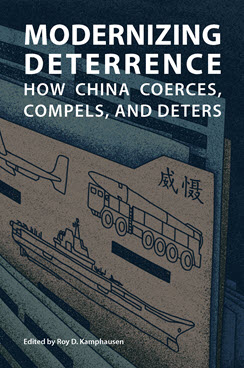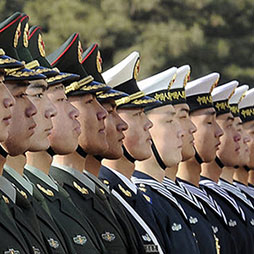How China’s Nuclear Past Shapes the Present: Ideological and Diplomatic Considerations in Nuclear Deterrence
This chapter examines the two dominant approaches to Chinese nuclear deterrence and considers a third domestic political approach focused on the role of party ideology and diplomacy.
EXECUTIVE SUMMARY
MAIN ARGUMENT
Two approaches are widely utilized to assess Chinese nuclear capabilities, explain long-term ideas, and understand practices of strategic deterrence in China. The first involves a rigorous tracking of technological changes to the Chinese arsenal. The second (sometimes referred to as “nuclear talk”) focuses on past and present statements about strategic deterrence by authoritative political and military figures in China. Yet these approaches risk overlooking prior domestic political considerations that also explain long-term ideas and practices of Chinese nuclear deterrence. A third approach, which I call the domestic political approach, is thus needed. According to this approach, domestic political considerations have an internal and external focus: the internal focus is on Chinese Communist Party (CCP) ideology and how it relates to strategic deterrence, whereas external political considerations concern diplomacy in both peacetime and during crises. Taken together, the two traditional approaches and the domestic political approach provide a comprehensive picture of Chinese attitudes and policies regarding nuclear deterrence.
POLICY IMPLICATIONS
- Ideologically constituted nuclear ideas such as “no first use” are hard to decipher and change from the outside. Drastic changes to such ideas are more likely to come domestically when they are no longer useful to the broader foreign policy and diplomatic goals of the CCP.
- The U.S. may have room to shape external political considerations around diplomacy and strategic deterrence in China during peacetime and crises. To this end, it should continue to build up Chinese-language capabilities within the U.S. government and military to study China. It should also engage with middle- and lower-ranking Chinese military, scientific, and political diplomats on crisis management.
- The U.S. should not publicly state that it shares mutual vulnerability with China. This would be counterproductive in arms control terms and lock the bilateral relationship into an even more competitive trajectory. Moreover, it could provide a political exit for China to break away from restrictive ideologically constituted nuclear ideas such as no first use.
Nicola Leveringhaus is Senior Lecturer/Associate Professor in East Asian Security and International Relations in the Department of War Studies at King’s College in London.
This chapter draws on the author’s remarks on the role of history in Chinese nuclear thinking at a NATO nuclear meeting in March 2021.
The author acknowledges a BA/Leverhulme Small Research Grant SRG 2017 on “Chinese perspectives on the bomb in the early atomic age (1945–49),” as well as research assistance provided by Katrin Heilmann.



